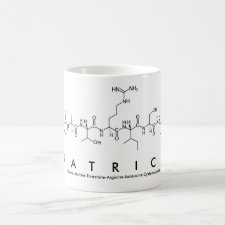
Authors: DiliŽn H, Peeters M, Royakkers J, Harings J, Cornelis P, Wagner P, Redeker ES, Banks CE, Eersels K, Van Grinsven B, Cleij TJ
Article Title: Label-Free Detection of Small Organic Molecules by Molecularly Imprinted Polymer Functionalized Thermocouples: Toward In Vivo Applications.
Publication date: 2017
Journal: ACS Sensors
Volume: 2
Issue: (4)
Page numbers: 583-589.
DOI: 10.1021/acssensors.7b00104
Alternative URL: https://e-space.mmu.ac.uk/618333/
Abstract: Molecularly imprinted polymers (MIPs), synthetic polymeric receptors, have been combined successfully with thermal transducers for the detection of small molecules in recent years. However, up until now they have been combined with planar electrodes which limits their use for in vivo applications. In this work, a new biosensor platform is developed by roll-coating MIP particles onto thermocouples, functionalized with polylactic acid (PLLA). As a first proof-of-principle, MIPs for the neurotransmitter dopamine were incorporated into PLLA-coated thermocouples. The response of the synthetic receptor layer to an increasing concentration of dopamine in buffer was analyzed using a homemade heat-transfer setup. Binding of the template to the MIP layer blocks the heat transport through the thermocouple, leading to less heat loss to the environment and an overall higher temperature in the measuring chamber. The measured temperature increase is correlated to the neurotransmitter concentration, which enables measurement of dopamine levels in the micromolar regime. To demonstrate the general applicability of the proposed biosensor platform, thermocouples were functionalized with similar MIPs for cortisol and serotonin, indicating a similar response and limit-of-detection. As the platform does not require planar electrodes, it can easily be integrated in, e.g., a catheter. In this way, it is an excellent fit for the current niche in the market of therapeutics and diagnostics. Moreover, the use of a biocompatible and disposable PLLA-layer further illustrates its potential for in vivo diagnostics
Template and target information: dopamine, cortisol, serotonin
Author keywords: cortisol, dip coating, dopamine, heat-transfer method (HTM), molecularly imprinted polymers (MIPs), polylactic (L)-acid (PLLA), Serotonin



Join the Society for Molecular Imprinting

New items RSS feed
Sign-up for e-mail updates:
Choose between receiving an occasional newsletter or more frequent e-mail alerts.
Click here to go to the sign-up page.
Is your name elemental or peptidic? Enter your name and find out by clicking either of the buttons below!
Other products you may like:
 MIPdatabase
MIPdatabase









